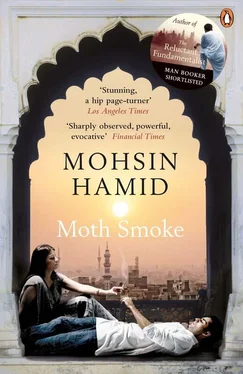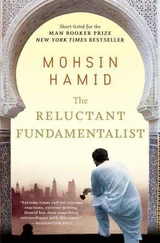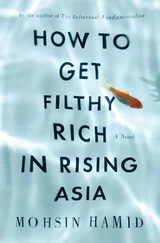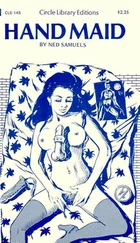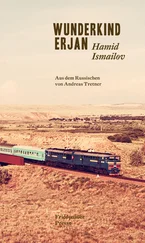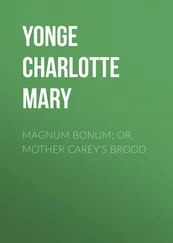‘Sixteen.’
I wonder whether sixteen’s too young to be smoking hash. Then I decide it isn’t. I wasn’t much older than that when I started, and kids today are doing everything earlier than we did. It’s the MTV effect.
Manucci watches as Shuja and I exchange the hash for a thousand, a disapproving look on his face. I give him a quick glare, and he ducks back into the kitchen.
‘How long have you been a doper?’ I ask Shuja.
‘Oh, you know.’
‘I don’t know. Six months? A year?’
He looks uncomfortable. ‘A month, maybe. A couple of my friends tried it before that, but we never had anyone to buy from.’
Maybe I shouldn’t sell it to him. But he pays a thousand when all my other customers pay five hundred. Besides, he’s nothing to me.
‘Don’t do too much,’ I say.
‘I won’t. My father’s strict. He’d thrash me if he found out.’
I walk him out and stand in the driveway long after his car has disappeared, smoking a cigarette and trying hard to see even a single star through the night haze. I hear Manucci come up behind me. He doesn’t say anything.
‘What is it?’ I ask.
‘Saab.’
Something in his voice makes me turn around. He’s looking at the ground, and when he looks up I’m surprised because he’s so afraid.
‘What?’
‘Don’t do this.’
I take a drag of my cigarette and then drop it onto the driveway, putting it out with my shoe. ‘Do what?’
‘Sell charas.’
I feel the anger coming, slow and dry, the air moving through my nostrils, the swelling in my torso. This will not happen. I won’t permit it. My servant will not tell me what to do.
‘What did you say?’ I ask, my voice a warning.
‘This is wrong, saab. You shouldn’t sell charas.’
I look at Manucci, this boy now almost my height, at the sparse, dirty curls of his newly arriving beard, the food stain beside his mouth, the slack hang of his lips. And I can’t wait any longer.
I step forward and slap him across the face with all my strength.
His head snaps to one side and he stumbles, falling to the ground. He cries out softly, a low sound, rough at the end, and covers his mouth with his hands. Then he looks up at me, the fear gone from his expression, leaving only seriousness and a gleam in one watering eye.
My hand is numb. I walk into the house, rubbing it.
I wake up with my head pounding, sweating hard. Two blades of the ceiling fan come together in an insane grin, the whole contraption absurd as it hangs over my face, dead in the heat. I yell for Manucci, and the effort sends blood rushing into my skull.
Damn that boy. Where is he?
I yell again, so loud it hurts, and still he doesn’t come. An uneasiness settles into my stomach. I drag myself into the bathroom and sit down, my thighs sweating against the plastic seat of the toilet. As a general rule, I’m not one to wake and bake. But today I feel like making an exception, so I hollow out a cigarette, repack it with some hash, and take a long hit just as a shaft of pain knifes through my rumbling bowels.
Liquid. Completely liquid. And acidic. The worst kind. Frothy and all that. I need some Imodium, a double dose double quick, or I’ll be dehydrated by sunset.
I clean myself, wash my hands in the hot tap water with a sliver of soap, take my bedsheet, wrap it around my waist, and trudge out of my room in search of Manucci. The house is quiet, dead moths on the floor and sooty marks on the ceiling above candles that burned themselves into puddles of wax overnight. Not only has the boy forgotten to sweep, he’s wasted perfectly good candles by not blowing them out. He’s in for it when I find him.
But I can’t find him. I’m smiling now, the kind of smile that stretches over clenched teeth. When I step outside, gripping my bedsheet with one hand, and see the gate open, both metal doors flung outward, I tilt my face up to the sun and cover my eyes with my fists. Then I stand there, naked, the taste of blood in my mouth, holding the first knuckle of my fist with my teeth. A woman walks by the gate, leading a little boy with a balloon of hunger in his belly and hair bleached by malnutrition. Neither of them sees me.
I shut the gate, stare up and down the street from behind it. Somehow I know that he won’t come back. Manucci is gone. My own servant has left me, left because of one little slap. That boy had better pray I never see him again. To think that I fed him, sheltered him, for all these years, and this is his loyalty, his gratitude.
I can feel the heat radiating from the metal of the gate.
I head back inside, and my stomach is so bad that I vomit before I can make it to the bathroom. Then I curl up on my bed, exhausted. When the sun goes down, I get up again, take a cloth and bucket, and clean up the mess I’ve made, gagging from the smell. Even when I’m done, the stench lingers in the house. I head out to the medical store to stock up on Imodium and rehydration salts. I also pick up a packet of biscuits, but when I try to eat them, I can’t.
I wake up the next morning feeling weak, but I haven’t had any vomiting episodes or bowel movements during the night, so I know that I’m not in danger of dehydration. Besides, I’ve finished off several packets of salts, taken three times the recommended amount of Imodium, and downed a full two-liter bottle of water. Excessive, I know, but I hate being sick.
The only person I see for the next two days is Mumtaz. She buys canned soup and heats it for me, saying I shouldn’t have high expectations because she’s a horrible cook. I tell her about Manucci, and she gets angry with me. She seems to think it’s my fault. I’m too tired to argue, and I don’t want her to know I’ve been selling charas, so I sip my soup and keep my mouth shut.
After she leaves I’m alone, all by myself in the house. Alone even when I feel better.
Until the phone rings.
‘Um, hello?’
‘Who is this?’ I ask.
‘Shuja.’
‘How are you?’
‘Okay. Do you think I could get some more hash?’
I laugh. ‘You can’t already have finished what I gave you.’
‘No, I didn’t. But it’s all gone. I, um, gave some to my friends.’
He sounds tense. ‘Is everything all right?’ I ask.
‘Yes. So can you sell me some more?’
‘Of course. Come by this evening.’
‘Do you think you could come here?’
I wouldn’t mind getting out of the house, but something in the tone of his voice makes me uneasy. Then again, he overpays like no one else I know. ‘Where do you live?’
He tells me.
‘I’ll be over in half an hour,’ I say.
‘Do you think you could come a little later. Like in two hours?’
Again I feel suspicious. ‘Why?’
‘My, um, my father’s home. But he’ll be gone by then.’
‘Are you sure you don’t want to come here?’
‘Yes. I can’t.’
‘Fine. I’ll be there in two hours.’
When I arrive at Shuja’s family’s compound, I notice the boundary wall is topped with jagged glass that glints in the sunlight. I read the name above the house number and recognize it. So Shuja’s from a big feudal family. Who would have thought it? He seems so Westernized.
Instead of uniformed security guards at the gate there are a bunch of men with serious mustaches and shotguns slung over their shoulders. They look enough like village thugs to make me nervous. And there seem to be quite a few of them. But they open the gate without any questions and I walk in. The house itself is gaudy, huge and white, with massive columns and pediments and domes and even a fake minaret, as if it’s uncertain whether it wants to be the Taj Mahal or the Acropolis when it grows up.
The gate swings shut behind me with a loud clang, and some of the men with shotguns start walking in my direction. Palm trees line the driveway. I hear them rustle in the hot, dry wind.
Читать дальше
